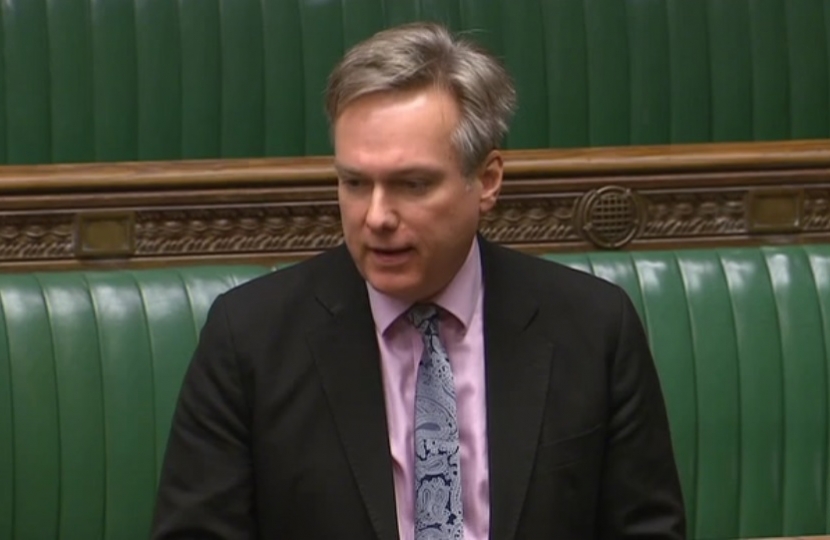
Crawley MP Henry Smith has welcomed confirmation from the Environment Secretary, Rt Hon Michael Gove MP, that the UK will introduce a ban on ivory sales.
The proposed ban will be the toughest in Europe and amongst the most stringent globally and will help to protect elephants for future generations.
Henry said;
“I welcome this Government’s action to address the fact that around 20,000 elephants are being slaughtered each year due to the global demand for ivory.
“It confirms that the British Government will make every effort to halt the decline in Africa’s elephant population in recent years. We need to leave our planet in a better state for the next generation, with stronger protections for animal welfare, but also cleaner air, greener spaces and tougher action on plastic waste.
“At the start of the year I questioned the Foreign Secretary in the House of Commons on the importance of national ivory bans and am pleased that the UK will introduce a ban on ivory sales to help protect elephants for future generations.”
The move follows a consultation which had more than 70,000 responses, with over 88 per cent in favour of the ban.
The UK has long been a global leader in the international fight against the illegal ivory trade. However, over the last decade, the number of elephants has declined by almost a third and around 20,000 a year are still being slaughtered due to the global demand for ivory.
As part of UK action to tackle the ivory trade, at a recent European Environment Council, the UK called for EU member states to ban commercial trade in raw ivory – which is already banned in the UK – within the EU as soon as possible.
Following on from the ground-breaking conference on the illegal wildlife trade held in London in 2014, the UK will host the fourth international conference on the illegal wildlife trade in October. This will bring global leaders to London to tackle the strategic challenges of the trade.
The Secretary of State for Environment, Food & Rural Affairs, Rt Hon Michael Gove MP, commented;
“Ivory should never be seen as a commodity for financial gain or a status symbol, so we will introduce one of the world’s toughest bans on ivory sales to protect elephants for future generations.
“The ban on ivory sales we will bring into law will reaffirm the UK’s global leadership on this critical issue, demonstrating our belief that the abhorrent ivory trade should become a thing of the past.”
Charlie Mayhew MBE, CEO of the Tusk Trust, added;
“We are delighted that the Government has listened to our concerns and given the overwhelming public response to their consultation is now moving decisively to introduce tough legislation to ban the trade in ivory in the UK.
“The narrowly defined exemptions are pragmatic. The ban will ensure there is no value for modern day ivory and the tusks of recently poached elephants cannot enter the UK market. We welcome the fact that Ministers are sending such a clear message to the world that the illegal wildlife trade will not be tolerated and every effort will be made to halt the shocking decline in Africa’s elephant population in recent years.”
Picture: Henry Smith MP questioning the Secretary of State for Foreign & Commonwealth Affairs, Rt Hon Boris Johnson MP, in the House of Commons on the illegal ivory trade, 9th January 2018.
Follow Henry daily via:
 www.twitter.com/HenrySmithUK
www.twitter.com/HenrySmithUK
 www.facebook.com/HenrySmith4Crawley
www.facebook.com/HenrySmith4Crawley
 www.youtube.com/HenrySmithMP
www.youtube.com/HenrySmithMP
Notes
The exemptions to the proposals have been tightened since the Government published its proposals for consultation, but still provide balance to ensure people are not unfairly impacted. By covering ivory items of all ages and adopting these narrow exemptions, the UK’s ban will be one of the toughest in the world:
·Items with only a small amount of ivory in them. Such items must be comprised of less than 10 per cent ivory by volume and have been made prior to 1947.
·Musical instruments. These must have an ivory content of less than 20 per cent and have been made prior to 1975 (when Asian elephants were added to CITES).
·Rarest and most important items of their type. Such items must be at least 100 years old and their rarity and importance will be assessed by specialist institutions such as the UK’s most prestigious museums before exemption permits are issued. In addition, there will be a specific exemption for portrait miniatures painted on thin slivers of ivory and which are at least 100 years old.
·Museums. Commercial activities to, and between, museums which are accredited by Arts Council England, the Welsh Government, Museums and Galleries Scotland or the Northern Ireland Museums Council in the UK, or the International Council of Museums for museums outside the UK.



